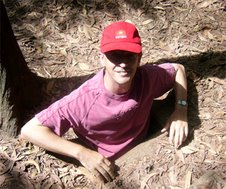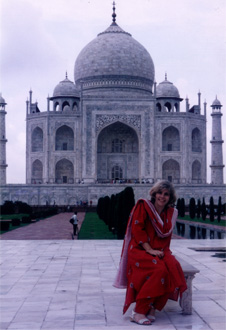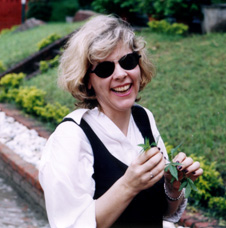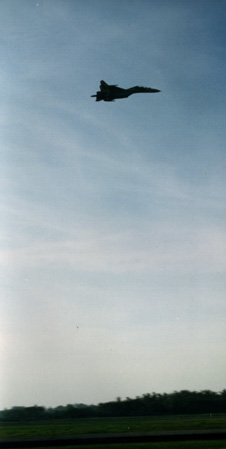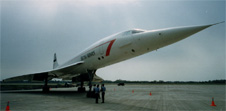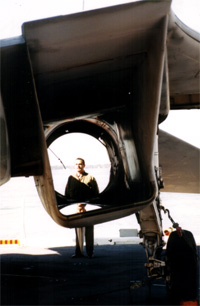Right now our farmers are enduring one of the worst droughts on record. At least in the eastern states of this country. A sad result of this drought is the high number of farmers and others in "the bush" committing suicide. Depression is a major issue with these men and I understand as many as two a week are opting out this way. To help encourage these men and their families, and to draw our attention to the problem the
Salvation Army had a local story teller, Murray Hartin, write a poem which is doing the rounds in this part of the world. I have copied it here below but you can find it on the
author's website here. If you like some original bush poetry check his videos where he recites his own material. It warms the heart. But none more than this one below.
Rain from Nowhere
His cattle didn’t get a bid, they were fairly bloody poor,
What was he going to do? He couldn’t feed them anymore,
The dams were all but dry, hay was thirteen bucks a bale,
Last month’s talk of rain was just a fairytale,
His credit had run out, no chance to pay what’s owed,
Bad thoughts ran through his head as he drove down Gully Road
“Geez, great grandad bought the place back in 1898,
“Now I’m such a useless bastard, I’ll have to shut the gate.
“Can’t support my wife and kids, not like dad and those before,
“Crikey, Grandma kept it going while Pop fought in the war.”
With depression now his master, he abandoned what was right,
There’s no place in life for failures, he’d end it all tonight.
There were still some things to do, he’d have to shoot the cattle first,
Of all the jobs he’d ever done, that would be the worst.
He’d have a shower, watch the news, then they’d all sit down for tea
Read his kids a bedtime story, watch some more TV,
Kiss his wife goodnight, say he was off to shoot some roos
Then in a paddock far away he’d blow away the blues.
But he drove in the gate and stopped – as he always had
To check the roadside mailbox – and found a letter from his Dad.
Now his dad was not a writer, Mum did all the cards and mail
But he knew the writing from the notebooks that he’d kept from cattle sales,
He sensed the nature of its contents, felt moisture in his eyes,
Just the fact his dad had written was enough to make him cry.
“Son, I know it’s bloody tough, it’s a cruel and twisted game,
“This life upon the land when you’re screaming out for rain,
“There’s no candle in the darkness, not a single speck of light
“But don’t let the demon get you, you have to do what’s right,
“I don’t know what’s in your head but push the bad thoughts well away
“See, you’ll always have your family at the back end of the day
“You have to talk to someone, and yes I know I rarely did
“But you have to think about Fiona and think about the kids.
“I’m worried about you son, you haven’t rung for quite a while,
“I know the road you’re on ‘cause I’ve walked every bloody mile.
“The date? December 7 back in 1983,
“Behind the shed I had the shotgun rested in the brigalow tree.
“See, I’d borrowed way too much to buy the Johnson place
“Then it didn’t rain for years and we got bombed by interest rates,
“The bank was at the door, I didn’t think I had a choice,
“I began to squeeze the trigger – that’s when I heard your voice.
“You said ‘Where are you Daddy? It’s time to play our game’
“’ I’ve got Squatter all set up, we might get General Rain.’
“It really was that close, you’re the one that stopped me son,
“And you’re the one that taught me there’s no answer in a gun.
“Just remember people love you, good friends won’t let you down.
“Look, you might have to swallow pride and take that job in town,
“Just ’til things come good, son, you’ve always got a choice
“And when you get this letter ring me, ’cause I’d love to hear your voice.”
Well he cried and laughed and shook his head then put the truck in gear,
Shut his eyes and hugged his dad in a vision that was clear,
Dropped the cattle at the yards, put the truck away
Filled the troughs the best he could and fed his last ten bales of hay.
Then he strode towards the homestead, shoulders back and head held high,
He still knew the road was tough but there was purpose in his eye.
He called his wife and children, who’d lived through all his pain,
Hugs said more than words – he’d come back to them again,
They talked of silver linings, how good times always follow bad,
Then he walked towards the phone, picked it up and rang his Dad.
And while the kids set up the Squatter, he hugged his wife again,
Then they heard the roll of thunder and they smelt the smell of rain.
 There are parts of Philly that are familiar (I have been in and out of here since 1997) and attractive - for all the reasons you would expect them to be. Here the Declaration of Independence was signed, Benjamin Franklin and his cronies hung out and where the nations capital was seated for a period of time. So there is the old brick, Roman colonnade sense of history to the place which I find appealing. Around about are smaller historical towns that convey that rustic historicity as well. Even the more modern skyline is distinctive and well balanced and sufficiently unique among skyscraper cities for it to stand out the moment you see it - including in the TV series Cold Case where this city sets the backdrop for those stories. And here are the famous boatsheds, the equally famous universities, Hymies deli (what sort of name is that?) Warmdaddys and the fractured bell.
There are parts of Philly that are familiar (I have been in and out of here since 1997) and attractive - for all the reasons you would expect them to be. Here the Declaration of Independence was signed, Benjamin Franklin and his cronies hung out and where the nations capital was seated for a period of time. So there is the old brick, Roman colonnade sense of history to the place which I find appealing. Around about are smaller historical towns that convey that rustic historicity as well. Even the more modern skyline is distinctive and well balanced and sufficiently unique among skyscraper cities for it to stand out the moment you see it - including in the TV series Cold Case where this city sets the backdrop for those stories. And here are the famous boatsheds, the equally famous universities, Hymies deli (what sort of name is that?) Warmdaddys and the fractured bell.

























